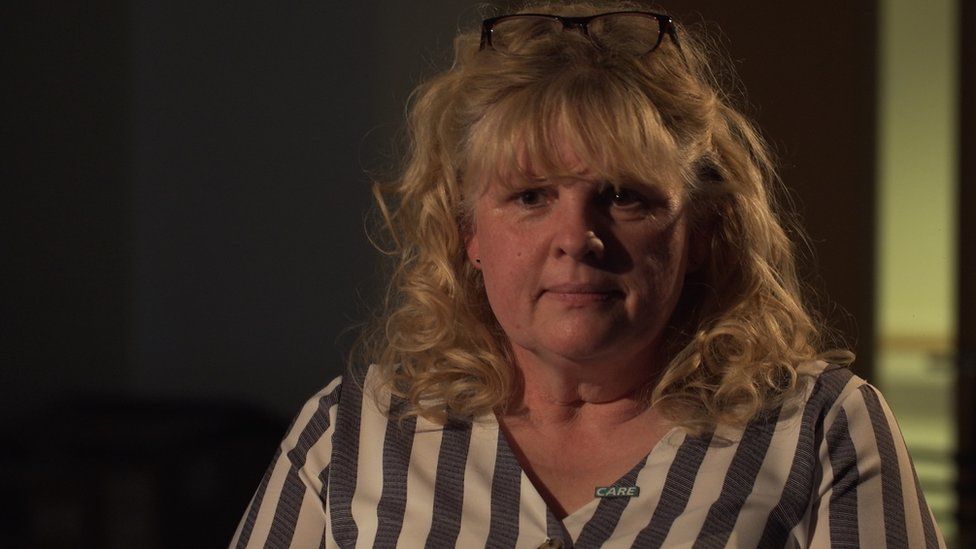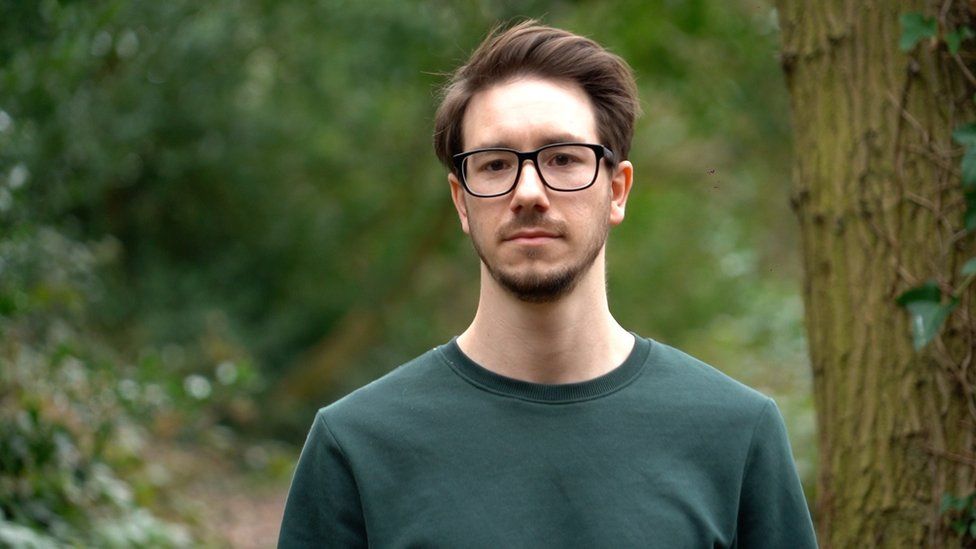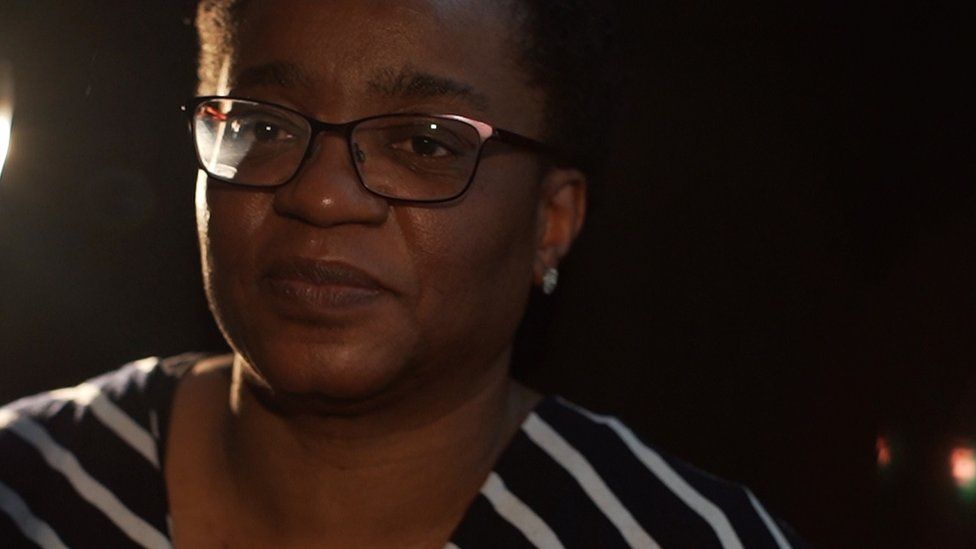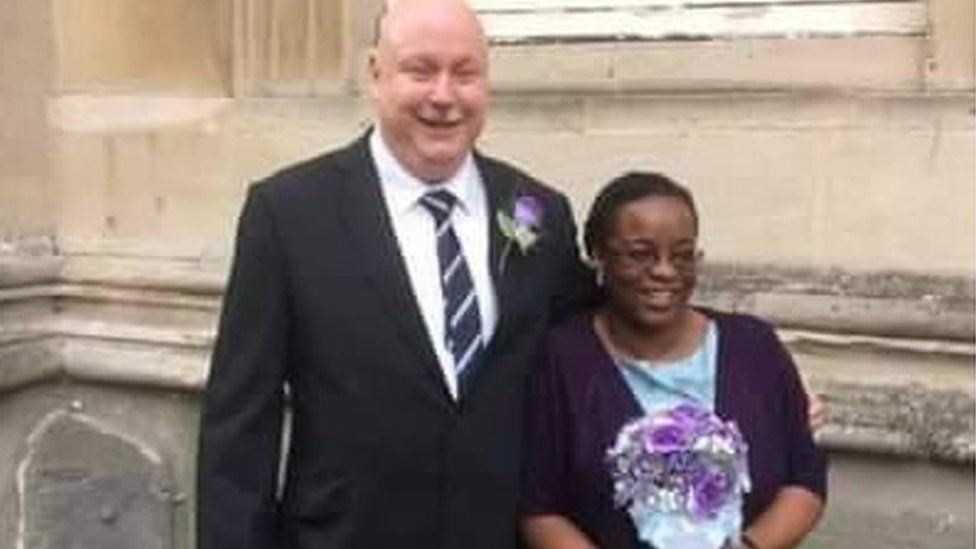
Social care workers need better mental health support and time to recover from the pressures of working through the pandemic, a union has said. Care staff have seen a high number of deaths from Covid-19, particularly in residential and nursing homes.
"I struggled to go into the rooms of the people that passed away," Georgina Noonan says. "I struggled because they're not there anymore. It's like family. It just triggers such emotions."
Georgina, a care leader at a residential home in Bristol where she has worked for more than 30 years, was shocked at how quickly people in her unit for people with dementia became ill.
Her home had its first case of Covid-19 at the end of December and five of the 12 people in her unit died during the outbreak.
"I've always cast myself as a very strong character," she says. "I've always worked with people with dementia, but it did make me stop and think can I carry on? "
She adds: "But I know I can because I have asked for help."
As well as getting counselling, she is now working in a different part of the home.
In the first weeks of April last year, the number of residents dying in care homes in England and Wales rose rapidly; hitting a peak of 1,300 deaths - 495 of which were with Covid-19 - on Easter Sunday, 12 April, according to the Office for National Statistics.
Three quarters of staff working in care homes and home care say their mental health has deteriorated significantly during the pandemic, according to the GMB union.
Research it carried out between December and January - as the second wave of the virus was having greatest impact - prompted 1,242 responses from care workers, mostly from England but also from other parts of the UK.
The union says it found anxiety levels among the care workers questioned were 44% higher than in people working across a broad range of other jobs.
And two thirds of respondents said their biggest worry had been they might take the virus home to family.

It was a fear that left Mark Topps, the manager of a home for people with learning disabilities, with extremely hard choices.
His wife had to shield because of health issues, so fearing Mark might bring the virus home, she and their young children moved out to stay with relatives.
"There were a lot of tears, we didn't want to be apart," he says. "Despite long hours working in social care, we've never been apart since I was 18 years old."
He has spent most of the last year living separately from his family, only seeing them online or at socially distanced meetings.
"It's been an incredibly busy time during the pandemic, and I think that's taken my mind off things, but I've missed out on two birthdays of my middle child, and Christmas and Easter."
Mark decided the only way they could return home safely was if he stopped working on the frontline of care and he's now changed jobs.
"It wasn't an easy decision. I would have just kept going and going and going. But I think eventually, there is burnout for everybody. You can't keep that up forever."
In a sector that already struggles to recruit enough staff, nearly a fifth of those who took part in the research said they expected to stop working in care within the next 12 months.

Nurse Johanet Sloan, who manages a home that supports people who need rehabilitation after they leave hospital, said: "You still have to get on doing your day-to-day job, but you've got Covid in the back of your mind, so I think that's where there's a lot of stress."
After a small Covid outbreak at the home, she developed symptoms and became so ill she had to be taken to hospital by ambulance.
"My husband came to say goodbye and I really thought this is the last time I'm actually going to see him," she says. "It was very scary.
"It really felt like I needed to look at him for as long as I could, just to get that image in my head."

Johanet describes going into hospital as her lowest point, but also says that was what saved her.
She's since returned to work and shares her story with others to encourage them to accept a coronavirus vaccine when invited.
"The quicker people get vaccinated, the safer it will be for us," she says. "Then we can actually start to recover properly, because I think that's what we need at the moment."
The government is currently consulting on plans to require care staff in England to receive a coronavirus vaccine as a condition of deployment.
The GMB says the responses to its survey underline the importance of providing mental health support for staff, as well as reasonable sick pay to allow time to recover.
A spokesperson for the Department of Health and Social Care said it was "committed to ensuring all our dedicated frontline care workers can access the support they need during this difficult time".
It added that it had helped to develop a package of psychological and practical resources to support social care workers' wellbeing.
"Delivering a care system that is fit for the future remains a top priority and we will bring forward proposals for social care later this year," the spokesperson said.
"impact" - Google News
April 23, 2021 at 11:06PM
https://ift.tt/3dITVoQ
Covid: Care staff reveal mental impact of pandemic - BBC News
"impact" - Google News
https://ift.tt/2RIFll8
Shoes Man Tutorial
Pos News Update
Meme Update
Korean Entertainment News
Japan News Update
Bagikan Berita Ini














0 Response to "Covid: Care staff reveal mental impact of pandemic - BBC News"
Post a Comment